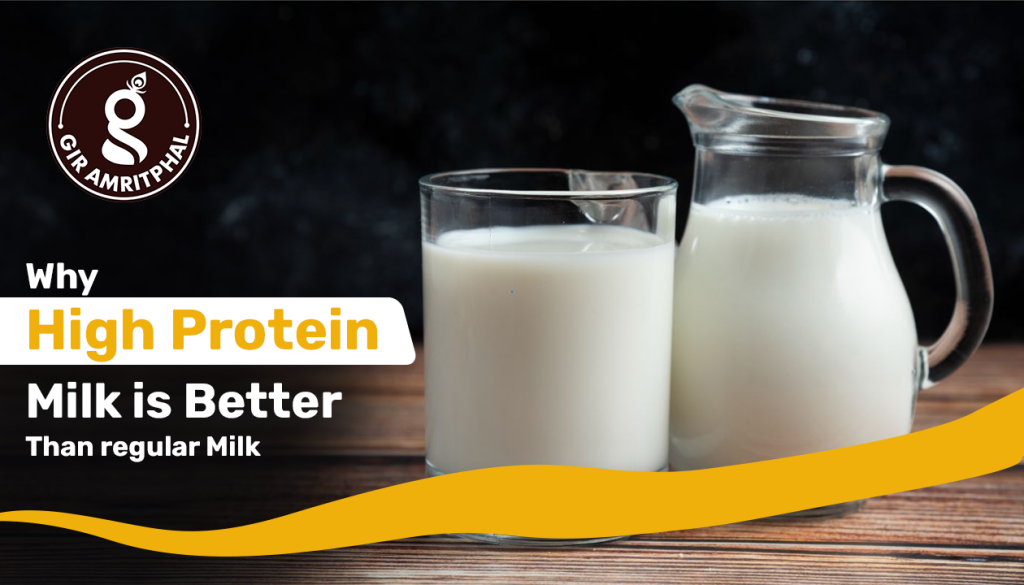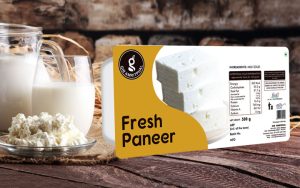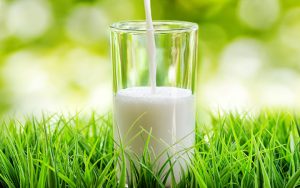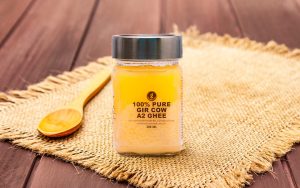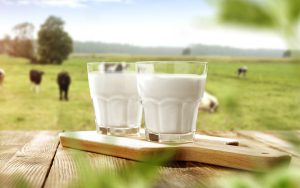Though it has long been established that low-fat dairy products are recommended for health, new research indicates that skim milk may not always be the best option. On the other hand, full-fat milk can actually be a very good, nutritionally dense diet supplement.
Milk is packed with nutrients; it is undoubtedly one of the most nutrient-rich drinks on earth, which is the reason it is a staple food in schools and loved by people of all age groups. For a good while, fads in nutrition have been pushing low-fat dairy foods for those aged above two. However, new research has appeared that casts doubt on this recommendation.
When weighing up the different kinds of milk, the high-protein milk clearly comes to the fore as the most suitable product for people who are both looking for nutrition and want to satisfy their appetite. The purpose of this article is to provide an overview of different milk varieties so that you can decide which milk is the best match for your diet.
High-protein milk is definitely the most suitable among different types of milk for those who need nutrition and also want to be satisfied.
What Is High-Protein Milk?
High-protein milk is a dairy product that is made especially for protein content and is found to have more protein than regular milk. The standard cow’s milk protein can give around 8 grams of protein per cup (240 ml). While high-protein milk can be from 10 to 20 grams depending on the brand and the processing method.
Such a protein is accomplished through
Ultrafiltration – A process that reduces water and lactose and therefore increases the protein concentration.
Supplementing with milk protein isolates (MPI) or whey protein—certain brands of milk are richer in protein sources than others.
Introducing particular breeds of cows—some dairy cows have the natural ability to produce milk with higher protein levels.
Why the Protein in Milk Is the Complete Package
Protein is indeed essential, but not all foods provide the same nutritional value when it comes to meeting your family’s daily protein requirements.
Protein content is not the only factor that should be considered when selecting protein sources, but also the quality, digestibility, and the presence of extra nutrients.
Milk, a drink fortified with 13 essential nutrients in every glass, is a yummy, effortless, and wholesome source of high-quality protein for the kids, in addition to the vitamins that they will need to be healthy and strong.
Though the amount of protein is important, real nutritional value is achieved when qualities, digestibility, and the whole essential nutrients package are taken into account.
Hence, milk remains unique—one glass of it gives 13 essential nutrients, among them high-quality protein, in a form that is naturally tasty, easy to prepare, and balanced perfectly for children and people with active lifestyles.
The Facts About Milk’s High-Quality Protein
Milk is a complete protein source of impressive quality as well as a full spectrum of nutrition. A serving of milk contains 12 necessary vitamins and minerals besides protein, such as calcium and vitamin D, which are the most commonly missing vitamins in today’s diets.
This natural drink represents an easy and affordable method to increase daily nutrition not only for kids but also for adults, whether it is consumed plain, in smoothies, or alongside meals.
What is it that makes milk’s protein so unique? It has both whey (20%) and casein (80%), the two complete proteins that give the nine essential amino acids that your body requires. Milk is quite unlike many plant proteins that can be incomplete or protein snacks that are heavily packed with artificial additives.
Milk, on the other hand, gives natural, high-quality protein in the most bioavailable form. New research shows that milk protein could also help make bones denser than other protein sources.
Milk is a nutritional bargain at approximately 25 cents per serving, which is a complete protein of 8 grams and the eight essential nutrients provided by milk, in addition to the protein, for 80 calories per glass.
There is an option for every dietary preference, from fat-free milk to whole milk varieties. To make it even better, science has proven that after exercise, low-fat chocolate milk is perfect as a recovery drink, having the right proportions of proteins and carbohydrates to replenish the muscles.
For a vegetarian seeking plant-based milk alternatives, noting the unique nutritional properties of organic dairy milk is worthwhile because, unlike many other drinks, it is naturally rich in certain nutrients and serves as a very good source of calcium, complete protein, and other crucial vitamins and minerals that are in fact hard to acquire in a vegetarian diet. Although calcium is provided by fortified soy milk and leafy greens, a deficient intake thereof may take away ample supply of some other basics such as protein, vitamin D, vitamin A, and . When you incorporate organic milk into your daily meals, you ensure the consumption of a balanced diet containing these important nutrients.
How Milk Compares to Other Sources of Protein
Milk is a straightforward source of high-quality protein, which is easy to recognize when you plan your daily protein intake. One glass of milk gives you 8 grams of protein (1 gram per ounce), which is more than a large egg (6 g) and eight times more than almond milk (1 g).
Kids definitely require the main nutrients, such as calcium and vitamin D, in order to form strong bones, and milk is most probably the best source of these nutrients. The American Academy of Pediatrics affirms that milk carries these nutrients to the body more efficiently than supplements or other sources like vegetables or plant-based milks.
A great number of people might not be aware that plant-derived milks, such as soy milk, do not have the same nutrients that are naturally present in the milk from the cow. Even though these substitutions, on the one hand, might be healthy, on the other hand, their vitamins and minerals (e.g., calcium and vitamin E in almond milk) are most often given to them through fortification rather than naturally taking place.
Soy drinks are a good source of natural protein and some other nutrients, but they, likewise, tend to be fortified. As a matter of fact, in order to be more similar in nutritional composition to cow milk, some soy milk can have up to 5 extra nutrients that are added.
Milk: A Great Protein Drink For Kids
Providing children with protein in each meal, most importantly breakfast, is essential for them to be able to stay energized throughout the day.
Milk can be a tasty and convenient source of high-quality protein, which is combined with 13 essential nutrients in every glass. This is a healthy, natural option to fulfill your child’s nutritional requirements for growth and energy.
The American Academy of Pediatrics has issued a recommendation that growing teens might require up to four servings of dairy (for instance, milk) a day in order to facilitate bone development.
To get a quick protein-rich breakfast, give them a glass of milk together with their favorite foods in the morning—such as eggs—or mix it into a smoothie or overnight oats.
What Is the Difference Between Organic Milk and Non-Dairy Options
Real organic milk is a perfect, nutrient-packed food that is ideal for kids and adults. But with plenty of different “milk” types available, it is not an easy task to find the most suitable one for your family. The list of healthy milk alternatives includes those that are highly processed and additionally heavily sweetened, salted, thickened, and stabilized.
When buying organic foods and drinks, it is advisable to always read the ingredient labels carefully. The only matter of composition for genuine organic dairy milk is the organic milk with added vitamins A and D, i.e., the milk you definitely have the nutrients that you are informed about.
On the other hand, most non-dairy substitutes are typically 10 or more ingredients plus various chemical additives such as salt, sugar, stabilizers, and emulsifiers, e.g., locust bean gum, sunflower lecithin, and gellan gum
For a vegetarian seeking plant-based milk alternatives, noting the unique nutritional properties of organic dairy milk is worthwhile because, unlike many other drinks, it is naturally rich in certain nutrients and serves as a very good source of calcium, complete protein, and other crucial vitamins and minerals that are, in fact, hard to acquire in a vegetarian diet.
Although calcium is provided by fortified soy milk and leafy greens, a deficient intake thereof may take away an ample supply of some other basics, such as protein, vitamin D, and vitamin A, and when you incorporate organic milk into your daily meals, you ensure the consumption of a balanced diet containing these important nutrients.
Conclusion
High-protein milk is a great option to support muscles, recovery, and health. Anyone can be a great option in search of high-protein milk for athletes, fitness enthusiasts, or essential amino acids, vitamins, and minerals packed with minerals. You can add it to a smoothie or shake, or drink it directly. It is an easy, delicious, and nutritious addition to any diet. Why not include high-protein milk in your life? You will start enjoying the benefits of getting healthy and feeling strong!

